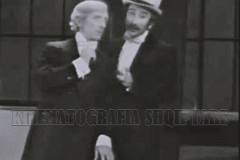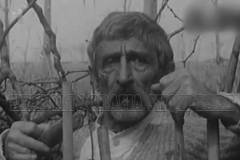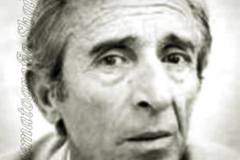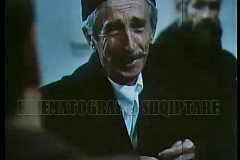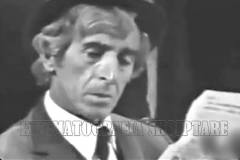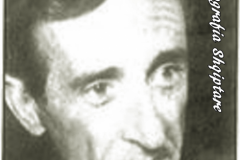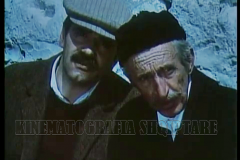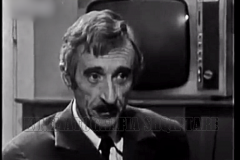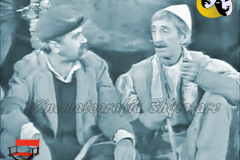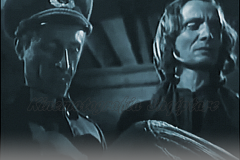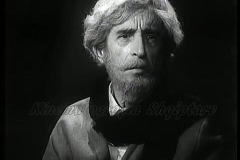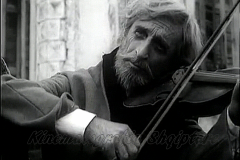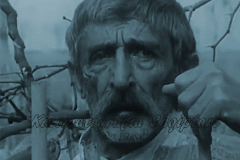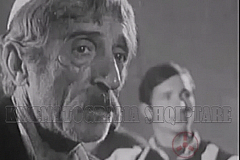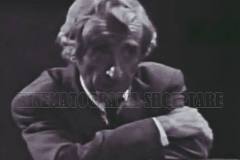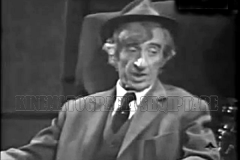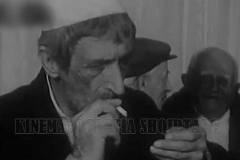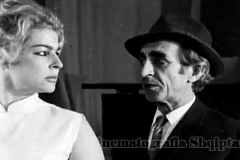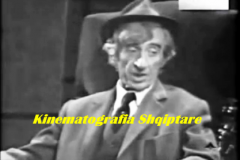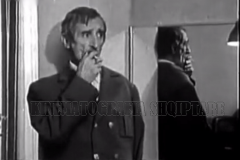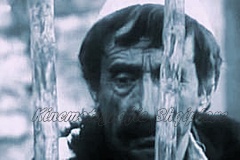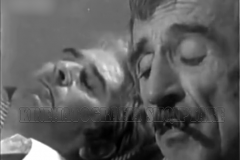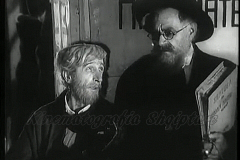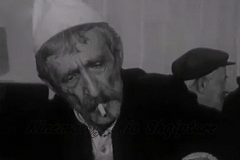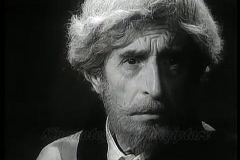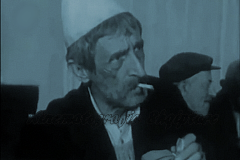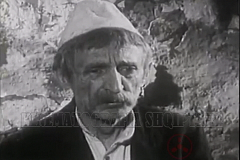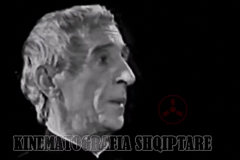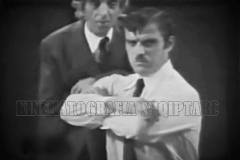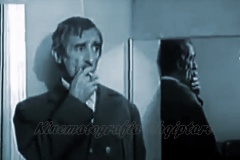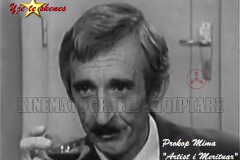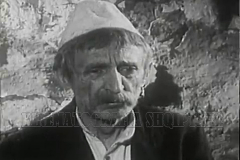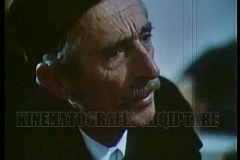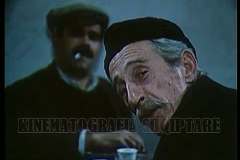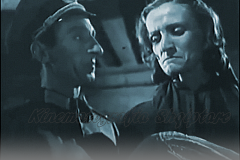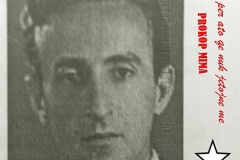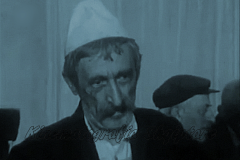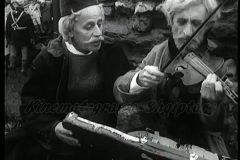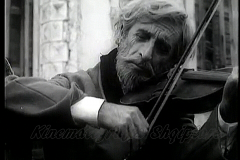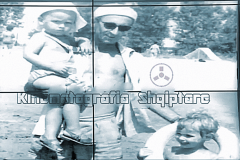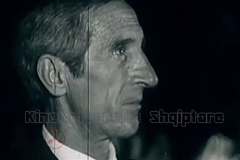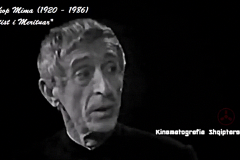Prokop Mima (1920 – 1986)
Prominent Albanian theater and cinematography actor, one of the veteran actors in Albania. Holds the title “Merited Artist”
Born in Durrës on July 7, 1920. Finished high school in Durres, going on to study abroad. Its main feature was simplicity, extremely simple. He was modest and had a commitment to work and to people. Liberal in his relations with his children and tried to pass on the same qualities to them.
Since he was young, Mima was passionate about flowers and fishing! In his free time, taking care of the flowers in his yard, he would test his voice by reciting different parts.
Prokop Mima did not study to be an actor, but study pharmaceuticals. He had received a scholarship from the Italian government at that time for university studies in Padova.
Prokop Mima did not manage to finish school; he was forced to leave it in the 4th year after the capitulation of Italy and return to his homeland.
After the liberation of the country, Mima will pursue an artistic career in the Theater, which will stand out in acting so much that it will become “Saint Prokop of the Theatre”, although the merits and contribution to the performing arts will be constantly denied.
Started his activity on the stage in 1945, with the creation of the “Popular Theater”, which celebrated its foundation on May 23, 1945, with a comedy show called “Topazi” by Marcel Pognol, and Prokop Mima played the role in this show of Roje de Bervilduke, standing out as an actor in terms of sarcasm.
Throughout his career, he performed about 80 roles in the theater and only 4 in the cinema, becoming part of the golden generation and pioneers of the Albanian scene.


 Until 1982, Mima created many characters, so among the many roles that the actor Mima has embodied, Kockareli stands out in “Gogol’s Marriage”, the post office clerk in Gogol’s “Revizori”, Tahir Bey in “Halili and Hajria” by K. Jakove, Hasan aga in Besim Levonje’s “The Prefect”, the dance professor in Moliere’s “Noble Bourgeoisie”, the lieutenant in I. Kadare’s “The General of the Dead Army”, Turkani in the comedy “The Irreplaceable” by Qamil Buxheli, Hamlet in “Hamlet etc.
Until 1982, Mima created many characters, so among the many roles that the actor Mima has embodied, Kockareli stands out in “Gogol’s Marriage”, the post office clerk in Gogol’s “Revizori”, Tahir Bey in “Halili and Hajria” by K. Jakove, Hasan aga in Besim Levonje’s “The Prefect”, the dance professor in Moliere’s “Noble Bourgeoisie”, the lieutenant in I. Kadare’s “The General of the Dead Army”, Turkani in the comedy “The Irreplaceable” by Qamil Buxheli, Hamlet in “Hamlet etc.
Prokop Mima has been described as special in his speech, a master of the Albanian language, a brilliant character actor, where his acting was appreciated for drawing characters hit, original with that ringing voice of his.
In the “Popular Theater” he is the performer of two impressive roles, the first is that of Zbišek in the comedy “Morali i zonjes Dulska” (1958) by Gabriela Zapolska, where he portrays through a sharp sarcasm, the virtuoso, adventurous and deceitful man, while in the second the role of Givola in the drama “Arturo Ui” drama translated into Albanian by his brother-in-law, Robert Shvarc.
Role with which he gave the scary figure of a bandit, the hideous lame, the demagogue and the organizer of the funeral rituals of Arturo Wise’s political opponents.
In 1957, he stands out with the interpretation of Vurmi in the drama “Intrige and love” by Schiller, a role that was treated in an allegorical style, going as far as symbolizing the envious man, greed and traps.
While in A.Z Cajupi’s comedy “After death” he gives a satirical form now, to the portrait of Dr. Adhamudhi, ironizing his empty immediacy, mocking no mercy with pseudo-patriots and two-faced people.
One of the peaks of his acting was the role of Don Mark in the drama “Cuca e maleve” by Loni Pape in 1968. The intentional suppression of the word and biblical sentences, in the church yard, in the cell and in Zefi’s house, made significant counterpoints with insidious purposes of the character himself.
And with the role of Kiu Grem in the dramatization of the novel “Dead River” by J. Xoxa, in 1975, he brings the typical musky villager with a slow and measured speech, with reasoned behavior and actions.
Mima has performed several prominent roles in Albanian feature films such as the series “Emblema e dikurshme” or “The General of the Dead Army”.
Mima was often sent to artistically undeveloped areas, a task he performed with passion and excellence. In Librazh and Gramsh, he raised theater groups there thanks to the hard work he did and that was never appreciated.
The only “fault” of the great actor was that he was listed during the war, not with the communist youth, and only because of this he continued to be under surveillance. He was forced to “accept” intrigues and systematic denigration by the Party Organization.
One of his best roles, that of the priest in “Cuca e maleve” which he enjoyed, turned into a persecution for him!!!
However, Prokop Mima never complained. For many years, he was also a teacher of the artistic word at the Higher Institute of Arts. He was one of the most talented reciters of the “Popular Theater” with an unparalleled voice.
Thousands of verses from Albanian and foreign poetry are recorded in Radio-Tirana’s sound system, from where the Albanian word from his passionate recitation acquired the sounds of a sweet and special language, full of charm.
Actor Mima, also recite verses from the well-known Skanderbeg Story by F. Noli. He was honored with the title “Merited Artist”, very little for what he really was as an actor. “When he was at the peak of his career, he was expelled from the artistic life, they forced him to retire…” as his son, Florion Mima, said in an interview!
The Great Mima will argue with artists from other fields, saying that the actor if is taking away from the stage, he dies and he actually died on August 18, 1986, very shortly after he retired.
However, he was loved by everyone, many colleagues loved him as Sander Prosi, Ndrek Luca, Pjeter Gjoka, Lazer Filipi, Pirro Mani, Mihal Popi, Roza Anagnosti, etc. were his best friends.
Theater (Some of the plays performed by Mima)
“Topaz” / “Cuca e maleve” / “Hamlet” / “After death” / “The old river” / “The morals of Mrs. Dulska” / “Përkolgjinajt” / “Intrigue and Love” / “Arturo Ui” / “Our land” / “General of the Dead Army”
Movies:
1975: “General of Dead Army”
1979: “Former Emblem”
1980: “The Intendent”
1980: “Brothers and Friends”.
Published for the first time in October 2013 and revised in the following years
______________
Albanian Cinematography – in activity since 2013.
Reference: Newspapers, writings, various articles about the actor as well as Encyclopedia, Albanian Theater and Cinematography (Toena 2009) p. 297, 298
Follow us: Blog: https://albaniancinematography.blogspot.com/ Facebook: https://www.facebook.com/ksh.faqjazyrtare Dailymotion: https://www.dailymotion.com/kinetografiashqiptareartisporti YouTube: https://www.youtube.com/channel/UCDRYQ5xCyGkfELm3mX8Rhtw
Discover more from Albanian Cinematography - Sport
Subscribe to get the latest posts sent to your email.

